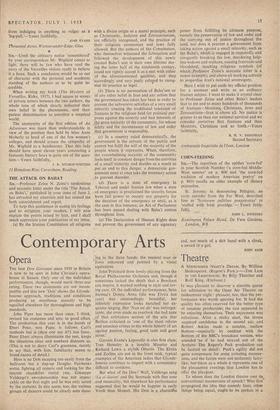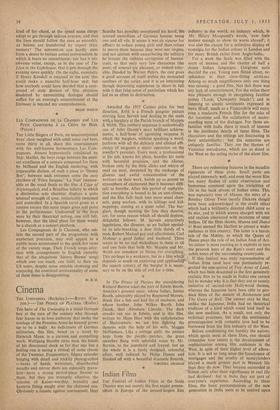Theatre
A MIDSUMMER NIGHT'S DREAM. By William Shakespeare. (Regent's Park.)—THE LION IN THE LIGHTHOUSE. By Billy Thatcher and Rolf King. (Embassy.) IT was pleasant to discover a sizeable queue for admission to the Open Air Theatre on midsummer night : pleasant, too, that the per- formance was worth queuing for. It had the quality too often reserved for the better type of amateur production; the cast appeared to • be enjoying themselves. Their enjoyment was infectious. After a sticky start, the lovers acquired confidence in the second act; and Robert Atkins made a notable, mellow Bottom—especially by contrast with the Bottom of the BBC's broadcast version, who sounded 'as if he had strayed out of the Archers.' The Regent's Park production can be faulted on detail : Puck's agility did not quite compensate for some irritating manner- isms, and the fairies were not uniformly fairy- like; but taken as a whole it represents one of the pleasantest evenings that London has to offer the playgoer.
To whom does the London theatre owe its conventional mannerisms of speech? Who first propagated the idea that comedy lines, other things being equal, ought to be spoken in a
kind of lay chant, at the speed some clergy adopt to get through tedious prayers; and that the lines should follow the cues as smoothly as batons are transferred by expert relay runners? The convention can hardly stem from a desire to imitate actual conversation, to which it bears no resemblance; nor has it any obvious value, except, as in the case of The Lion in the Lighthouse, that it gets through the evening more quickly. On the radio, especially if Henry Kendall is retained in the cast, this could make a passable half-hour skit; but how anybody could have decided that a com- pound of stale devices of film situation deadened by excruciating dialogue should suffice for an evening's entertainment at the Embassy is beyond my comprehension.
BRIAN INOLIS















































 Previous page
Previous page